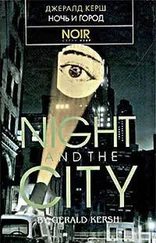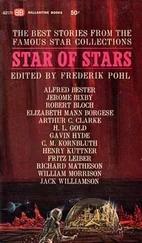“You don’t like?” grunted the waiter, jerking a contemptuous thumb toward my soup. I said, “I see that you have some of poor old Gino’s silverware here.”
“You knew him?”
“He was my friend,” I said, “he gave me credit.” The waiter changed. He stood up and grew taller; he smiled and became friendly. He whispered, “In a minute I get you two nice little lamb cutlets.” We smiled at each other. I was moved—although Gino was dead and the dust carts had dragged away the rubble that had been his house, by God’s grace his generous heart had not stopped beating. The waiter said, “He was patient. My goodness, what would’ve drove me mad, so it only made M’sieur Gino say Well! My Gawd, you remember that yellow woman what she called herself ‘The Countess’? With the scar on her face?”
“Gino was very patient with her,” I said, “poor woman.” The waiter winked and said, “Don’t drink that muck; I get you two nice little lamb cutlets—they do you more good, yes?” “Yes,” I said and he went away, flapping like a seal on his big flat feet in his shiny black coat.
. . . The Countess had been a beautiful lady, but when I knew her she was nothing but an attenuated shadow in a late afternoon. Her scar, a small one over her left cheekbone, made her face arresting. She was reminiscent of beauty, as an echo is like a voice. Yet in spite of her wild yellow hair, nobody denied that she was a lady. Have you ever come upon a ruin left tottering after an air raid—some bit of bedroom wall, for example, broken beyond repair, still retaining a few strips of carefully chosen wallpaper? You know that although blast has opened it to the rain and that it is pitiful in its exposure, it has in its day been beloved: it has witnessed certain glorious moments. The Countess was such a ruin.
She always had a little money on the first of every month—about eight pounds. Then she was a great lady, ready to carry the weight of all the troubles of the world. For about two days she gave drinks to strangers and money to beggars. On the fifth day she would be alone, twitching, with the Black Dog looking over her shoulder into the small glass which she was trying to keep half-emptied until somebody happened to offer her something. It was awful to see her on the edge of the twenty-one arid deserts of her next three weeks. Then Gino would catch the barman’s eye and nod, looking tired and sick. His nod said: Let her have credit . He insisted only that she eat something. Sometimes he would coax: “Madame la Comtesse, for you especially I make a little something—not for anybody, not for everybody, but for you !” She was always contemptuous, and said, “It doesn’t concern me. I am not interested in your little something.”
“If I have make it, could Madame la Comtesse not be gracious and say, ‘I will taste’?”
“Very well, only you must cash me a check.”
“First you must give me your opinion. There is an entrecôte. Nobody could tell, nobody could judge—only you. We beg your opinion.” And so she ate. As for her bill, Gino charged it to ‘Expenses,’ as the saying goes: he chalked it up and washed it out. Knowing this, the Countess grew more and more capricious, intolerably haughty. How could she admit that she was accepting charity? It was out of the question. “Laugh at me, laugh at me now!” she would cry, while her eyes flickered; she could not meet the horrible white stare of the Hangman Sobriety. “Laugh at me, laugh if you like, but I say I could have bought a dozen Ginos a little while ago!” To this, Gino always replied, “Dear lady, there is nothing to buy, nothing at all.”
The last time I saw her she was trying to cash a check. “September the what?” she asked, making blots on the dateline of a crumpled blue slip with a miniature fountain pen. A respectable bystander said, “The fourth, madam, September the fourth.”
“Of course it’s the fourth, I know very well it’s the fourth. I didn’t need you to tell me that. . . . Gino, you will cash my check for two pounds?” Gino gave her two pounds and, closing her poor smudged checkbook, slipped it back into her bag. She glared at him and screamed, “You thief! How dare you go over my bag?”
Gino murmured, “Be nice, put away your checks. Among friends, one trusts. Away, away—put it away!” He knew that her checks were valueless, they always came back; but she, tossing her bewildered head and still trying to write, said: “The fourth ?—of what month? Of September . . . September the fourth . . . .”
I heard Gino mutter, “Oh God, the sea is so wide and the boat is so small!” But then the Countess, waggling her useless checkbook, said with an odious and provocative grin, “I’ll tell you something. The Monk Paphnutius looked into my eyes—I was a girl of fourteen then—and he said, ‘You shall betray and be betrayed, and be loved by one whom you do not love and give your love to one who does not love you! You shall avenge your own victim, and after that you shall order the destiny of an Oriental Empire!’ . . . You and your dirty two pounds—”
The bar was filling. Gino said, “Dear lady, you are always welcome, but since you are excited you had better go and rest a little.” On the verge of tears she exclaimed, “And a little while ago I could have employed this creature to brush my shoes, and he would have been honored!” But she walked out, pushing the revolving door so violently that it thudded fifteen times. A few seconds later we heard a woman’s scream, a screeching of brakes, and a smashing clangor of metal and glass. Everybody looked at everybody else. The door revolved again, very slowly, and the Countess came back trembling, with a pale face. “It just missed me,” she said.
The chasseur, following her, said that she had missed death by inches, having stepped off the pavement in front of a speeding car which, swerving in order not to hit her, had skidded across the street into some railings. The Countess was ordering a drink. Gino, shaking his head at the barman said, “No, dear lady, this is all—no more. Just one last drink with me, for your nerves, and then God bless you! You must not come here any more.” She wept: “The Monk Paphnutius looked into my eyes . . . and I, who rule an Oriental Empire, that I should be spoken to like this, oh . . . oh . . .” Gino nodded and said, “Yes, Madame la Comtesse, even you, good-bye for God’s sake. You have an Empire, I have a License—enough is enough!” She went away, trailing her old-fashioned handbag, and Gino said, “Monks! Eyes! Empires! Licenses! I wish to God Almighty that I was an American sitting on a flagpole.”
I never saw the Countess again . . .
The waiter came back with the cutlets. They were burned on the outside and raw within. He was unconcerned. While a man at an adjacent table stamped his feet and beat hideous noises out of a crust with his knife handle, the waiter talked of Gino and of what a man he had been.
“Except somebody sometimes he liked everybody always,” he said. Then the manager came and almost dragged him away.
. . . I knew one of the men whom Gino did not like: a ruffian out of the Balkans, a man with a withered arm, who always had something to sell—a silk handkerchief, for example, with somebody else’s monogram or a fountain pen, fine today, oblique tomorrow, marked with any name but his own. He answered to the name of Stavro, and he was an unscrupulous villain, an unmitigated blackguard, and a swindler by vocation. His right arm and hand were bent into something like the shape of a tired rattlesnake. This deformity appeared to be the result of some recent injury, for the first time I saw him, in the spring of the year of Gino’s death, the arm was caught up in a black silk sling and he had the drawn look of a man suffering persistent pain. Even so, he was handsome in a dark, pantherish way; one sensed the man’s power over women and hoped that God would have mercy upon any infatuated creature that fell into his grip, for Stavro would have no mercy at all.
Читать дальше






